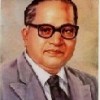by Admin
on December 8, 2011
in History

Since 1948, Ambedkar had been suffering from
diabetes. He was bed-ridden from June to October in 1954 owing to
diabetes and failing eyesight. He had been increasingly embittered by
political issues, which took a toll on his health. His health worsened
during 1955. Three days after completing his final manuscript The Buddha
and His Dhamma, [...]
by Admin
on December 8, 2011
in History
Upon India’s independence on 15 August 1947, the
new Congress-led government invited Ambedkar to serve as the nation’s
first law minister, which he accepted. On 29 August, Ambedkar was
appointed Chairman of the Constitution Drafting Committee, charged by
the Assembly to write India’s new Constitution. Granville Austin has
described the Indian Constitution drafted by Ambedkar [...]
by Admin
on December 8, 2011
in History
When India became independent in August 1947,
Babasaheb Ambedkar became First Law Minister of Independent India. The
Constituent Assembly made him chairman of the committee appointed to
draft the constitution for the world’s largest democracy. All his study
of law, economics, and politics made him the best qualified person for
this task. A study of [...]
by Admin
on December 8, 2011
in History
Babasaheb had by this time collected a library of
over 50,000 books, and had a house named Rajgriha built at Dadar in
north Bombay to hold it. In 1935 his beloved wife Ramabai died. The same
year he was made Principal of the Government Law College, Bombay. Also
in 1935 a conference of Dalits was [...]
by Admin
on December 8, 2011
in History
Due to Ambedkar’s prominence and popular support
amongst the untouchable community, he was invited to attend the Second
Round Table Conference in London in 1932.Gandhi fiercely opposed
separate electorate for untouchables, though he accepted separate
electorate for all other minority groups such as Muslims and Sikhs,
saying he feared that separate electorates for untouchables would [...]
by Admin
on December 8, 2011
in History
Round Table Conferences – Gandhi Meanwhile, the
Indian Freedom Movement had gained momentum under the leadership of
Mahatma Gandhi. In 1930, a Round Table Conference was held by the
British Government in London to decide the future of India. Babasaheb
represented the ‘untouchables’. He said there: -The Depressed Classes of
India also join in the [...]
by Admin
on December 8, 2011
in History
Leading Peaceful Agitation In 1927 Babasaheb
presided over a conference at Mahad in Kolaba District. There he said:
-It is time we rooted out of our minds the ideas of high and low. We can
attain self-elevation only if we learn self-help and regain our
self-respect.” Because of his experience of the humiliation and
injustice [...]
by Admin
on December 8, 2011
in History
The Birth of Bahiskrit Hitakarini Sabha
Babasaheb became known by his increasing number of followers –
those ‘untouchables’ he urged to awake – as Babasaheb. Knowing the great
value and importance of education, in 1924 he founded an association
called Bahiskrit Hitakarini Sabha. This set up hostels, schools, and
free libraries. To improve the lives of [...]
by Admin
on December 8, 2011
in History
Completion of Education – Leader of India’s
Untouchables In 1920, with the help of friends, he was able to return to
London to complete his studies in Economics at LSE. He also enrolled to
study as a Barrister at Gray’s Inn. In 1923, Bhimrao returned to India
with a Doctorate in Economics from the LSE [...]
by Admin
on December 8, 2011
in History
Bombay – Beginning Social Activity He had no
choice. After only eleven days in his new job, he had to return to
Bombay. He tried to start a small business there, advising people about
investments – but it too failed once customers learned of his caste. In
1918, he became a lecturer at Sydenham College [...]

